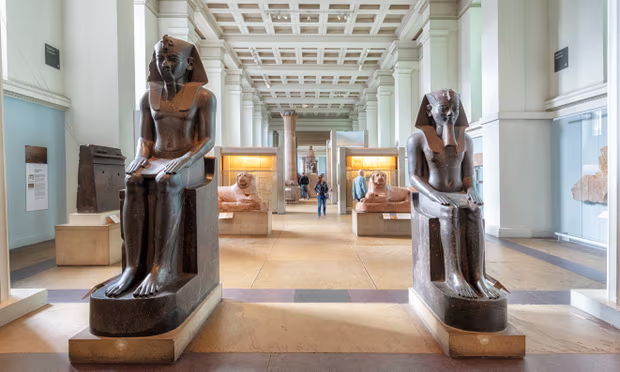I can’t help thinking of the title of that old David Lodge novel, The British Museum is Falling Down. The much-beloved institution is teetering beneath the weight of scandal. The museum’s chair has been forced to admit that as many as 2,000 objects have gone missing from the collection over the past decade. Public attention has turned towards an ex-curator allegedly removed from his post last year (his son has said he has done no wrong).
The director of the museum, Hartwig Fischer, has resigned with immediate effect. His deputy, Jonathan Williams, has stepped aside pending an independent review. An antiques dealer-turned-whistleblower has given angry interviews about the museum’s apparent complacency when he alerted managers to the fact that items he had seen listed on eBay seemed to have originated from the BM’s collection. A police investigation is under way.
Inside the museum, the mood is despairing, in an institution in which morale, even before this scandal, was often desperately low. Researchers have been turning their skills towards painstakingly tracking down and recovering missing objects apparently sold on the auction site.
Outside, a storm rages. In a state of chaos, the museum has opened itself up to a barrage of fury from both sides of the political divide both in the UK, and internationally. In Beijing, a state-backed newspaper is demanding the return of Chinese artefacts; there have been calls from everywhere from Athens to north Wales to repatriate objects.
Since the museum can’t keep hold of its own collection, it shouldn’t be allowed to be a custodian of anything at all, runs the argument. Some would go further, and say that the museum is institutionally steeped in theft: since large parts of its collection were wrongfully obtained under colonial conditions, why should anyone be surprised if its modern keepers also turned out to be thieves?
From the right, though, comes another warcry: the museum had one job to do – keep its objects safe – and it failed to do it, because it was too busy worrying about Black Lives Matter and apologising for slavery. According to the Mail, the alleged thefts at the museum are – somehow – the direct result of the fact that those in positions of influence “hate and despise our past”.
Is much of the press and external reaction to do with passionate care for the missing artefacts?
Resoundingly, no. It is depressing, and fascinating, to see such ire roused in the breasts of so many about objects to which, I am willing to bet, most of the fulminators have never given a second thought. The media outrage is barely about the objects at all. Rather, the British Museum has – through undeniable institutional failings – put itself in a position that will be depressingly familiar to other large cultural institutions, such as the BBC and the National Trust. It has become a stand-in for the culture wars, a proxy in a battlefield on which it will suffer many wounds before this scandal is resolved.



